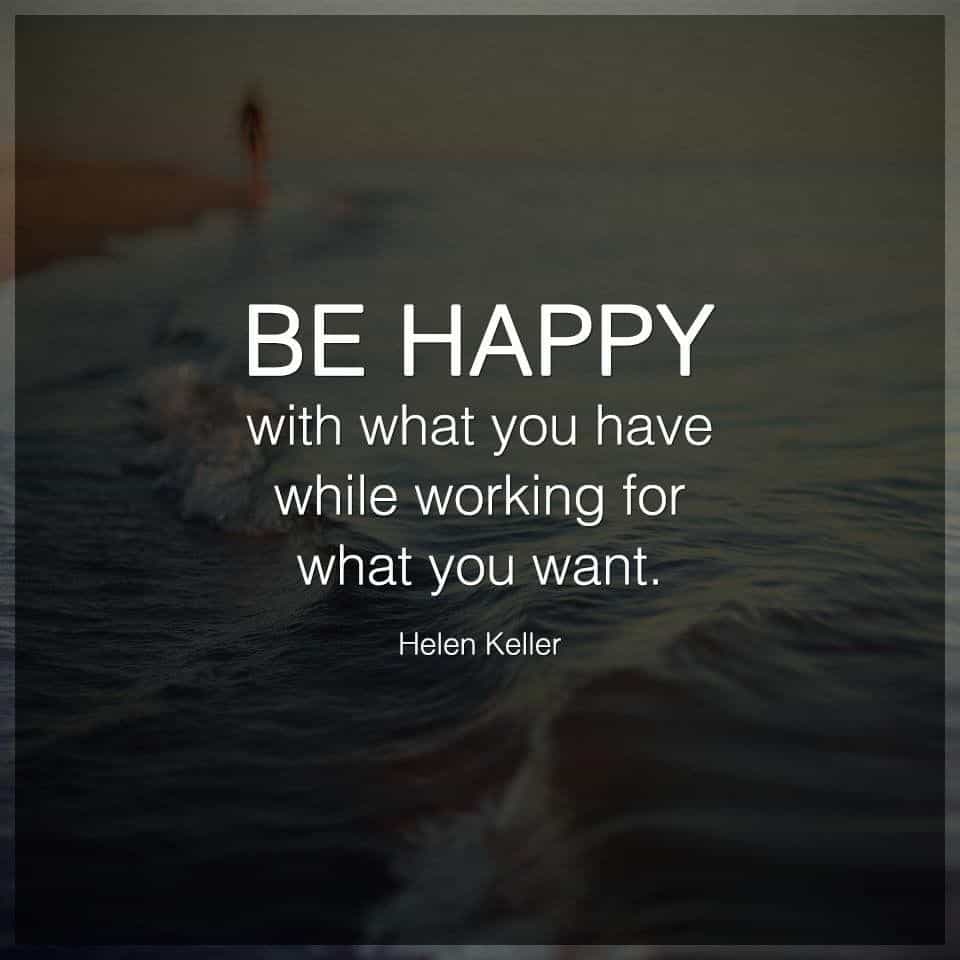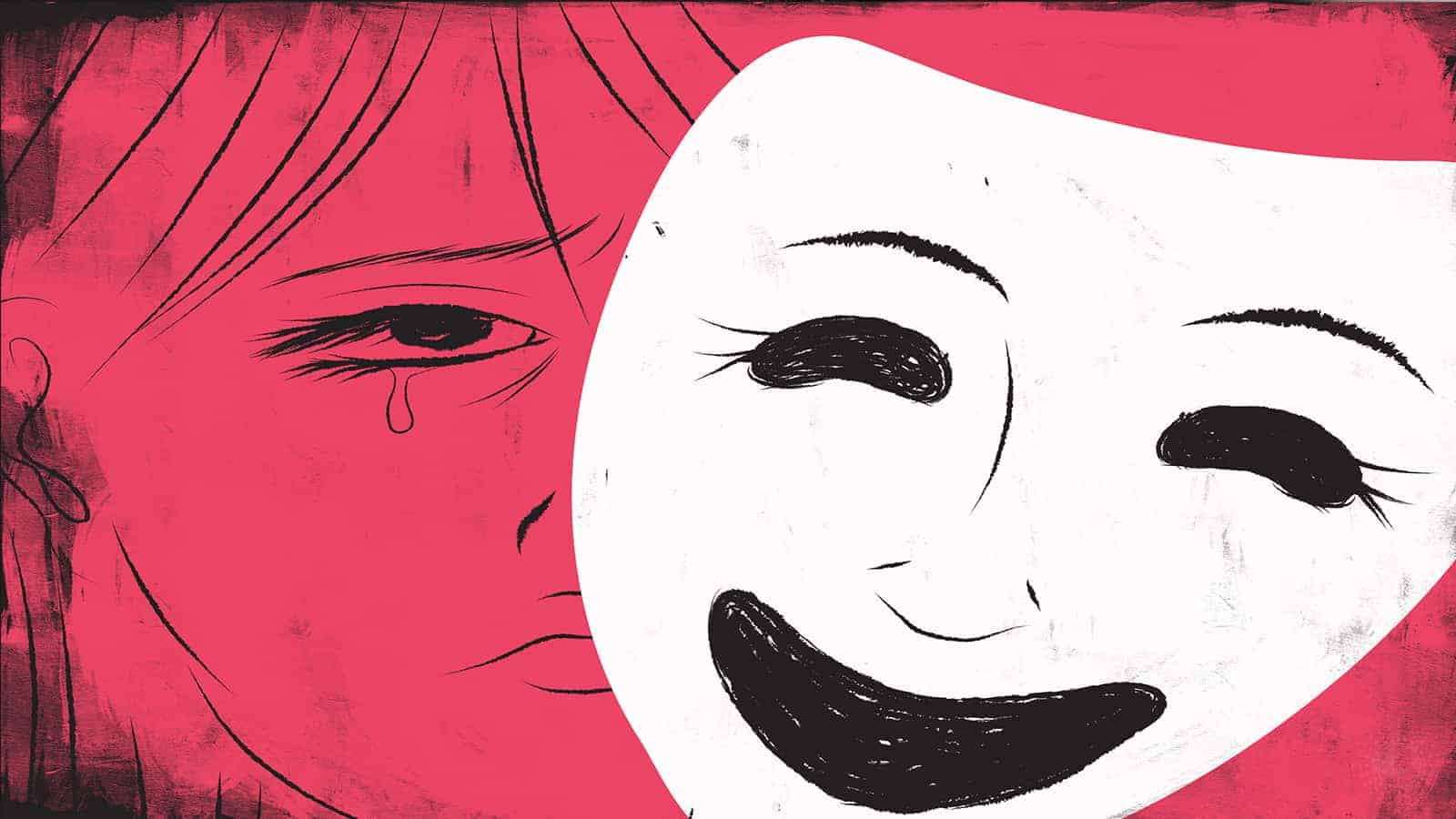Do you want to become happier in life? It goes without saying that few people would say they don’t! But are you doing what you can to achieve that goal, or are there things that hold you back?
A lot of the things that are preventing you from finding happiness aren’t the things you lack, but the things you continue to hang onto even when they only trap you. Here’s how experts reveal 9 things to let go of in order to become happier.
1. The Need For Constant Comfort
Do you tend to stay within your comfort zone at all times? There’s nothing wrong with relaxing and enjoying what’s familiar, but being uncomfortable shouldn’t be something you view as inherently bad. Sometimes, the fear of leaving that zone of perceived safety may be what’s preventing you from becoming the happiest that you can be!
Sascha Ballach, who wrote Get Out of Your Comfortzone, states that a lack of comfort doesn’t mean a lack of safety. In order to grow and feel free, you have to put on your positive thinking cap and dare to step outside what you’re used to once in a while. Big progress and genuine happiness involve taking risks every now and then, even if it makes you uncomfortable!
 2. Judgment
2. Judgment
Many people are very judgmental, both towards themselves and others. The issue is that judgment is always a sign of a tumultuous inner world. The judgment you put on others is a projection of the same judgment you put on yourself, and a life like this depletes positive thinking.
Roland Alexander, Ph.D. states that a lot of negative judgment, both towards the self and to others, can lead to the stifling of potential. It means a lot of negative focus on weaknesses over strengths. So focus on building what you’re good at and, when you’ve finally understood that your weaknesses don’t define you, you can begin working on your flaws, too. Let go of judgment to reach your true potential!
3. Unhealthy Habits
Most people are fully aware when something they do isn’t the healthiest, but they continue anyway because it seems harmless enough. Unfortunately, some remnants of guilt often remain, and those bits can build up into stress. And even those who don’t feel that guilt significantly aren’t immune to the negative effects that come with those habits anyway!
Cognitive psychologist Sarah C. McEwen recommends working on giving up or at least reducing the frequency of unhealthy habits. Though it can be tough at first, even just working on one or two bad habits can make a significant difference in long-term happiness. For example, you can:
- Enforce strict bedtimes on yourself to stop staying up late
- Limit alcohol consumption to once a week
- Limit caffeine consumption to one cup a day
- Work on stopping acts like biting nails or picking hair
- Pick up a hobby to replace time spent on something unhealthy
4. Comparisons
Every human being on this planet is going through their own personal growth, and most of them don’t share their setbacks and struggles with the world. As such, if you constantly look for people who seem to be doing better than you, you’ll always find them, and you’ll always drag yourself down in the process.
When you compare yourself to others, you forget that it’s like apples to oranges. Your life and experiences are so wildly different from any other person’s, and theirs is similarly different to everyone else. This comparison neglects to remember the uniqueness of your personal journey and how only you matter in your own growth.
Worse still, this type of comparison is a cycle. It stems from personal issues, and when you perform these comparisons, you create more of those issues and increase their severity! Judith Orloff, M.D., author of Emotional Freedom, states that comparing yourself to others can both come from and lead to:
- A lack of focus and progress on a personal path
- A lack of self-confidence or low self-esteem
- Lowered trust in yourself and your abilities
- Reduced focus on your own growth
5. Social Media Reliance
Social media lets people present the very best sides of themselves, often leading to feelings of:
- Inadequacy
- Envy
- Fear of missing out
- Social anxiety or pressure
- Validation desire
- Depression
In fact, numerous studies have found concerning links between poor mental health and social media usage, indicating that in excess and unfiltered, a lot of social media can ruin your positive thinking.
While it’s fine to use social media to keep in touch with close friends, the search for external validation through social media is much less productive, says Jennifer Musselman, a therapist. She adds that it’s difficult to maintain this kind of drive and desire for likes and online validation, and it’s much wiser to let go of this need and try building self-esteem internally.
 6. The Need To Say “Yes”
6. The Need To Say “Yes”
Are you often overwhelmed with all the things you’ve committed to, promises you’ve made, and so-called favors you’re carrying out? It’s time to learn to let go of the need to please others – so you can begin by saying “no” every once in a while.
Kevin Gilliland, a clinical psychologist, says that boundaries are extremely important for this. You need to realize that you have a lot of control over your life and time – more than you may have originally thought! It’s okay to say “no”, to draw lines about what you won’t do, and to not need a big explanation for why you don’t want to do something.
7. Negative Thoughts
Many of us have negative thoughts, and they can weigh down and disrupt positive thinking fairly quickly. Learning to release and let go of that negativity can work wonders for you and your personal progress!
Forensic and clinical neuropsychologist Judy Ho, who published a book on stopping the act of self-sabotage, states that it’s important to begin learning to effectively diffuse negative thoughts. She recommends changing thought relationships by challenging the way we think. Here is how to do so:
- 1: When confronted with a negative thought, stop the thought first.
- 2: Ask yourself if the negative thought is an accurate representation of true and complete factual reality.
- 3: If the negative thought represents a factual reality, use “yes, but” to add positive connotations or indications of truthful progress to the negativity; for example “Yes, I did skip out on exercising today, but I’ve been doing wonderfully with eating healthy and will go to the gym tomorrow!”
- 4: If the negative thought is not factual, you should use the “labeling” tactic to identify a negative and untrue thought and strip it of its power; for example “This is a toxic thought!”
Do note that this doesn’t mean you should repress negative thoughts. You should acknowledge and address them in order to decide what to do with them! And, if you need to, there’s no shame in taking time to express yourself or even cry. Research indicates that crying – when relevant – has a positive effect on stress and can even be therapeutic!
8. Food Shame
A lot of people have anxious or worried thoughts about their diet. If you’ve been counting calories, feeling guilty about eating less healthy treats, and denying even tiny sweets only to cave in to cravings and binge much later, it’s time to let go of food shame!
Fork The Noise founder and registered dietician Lisa Hayim explains that these kinds of anxious and stressed out thoughts when eating are immensely bad for happiness. Stress hormones go haywire and the sympathetic nervous system activates, preventing you from making good decisions that are empowered and fair.
Learning to trust and listen to your body is crucial. It tells you how much it wants and when, if you only pay attention. If you need more help staying grounded in your relationship with food, you may want to try out a practice known as mindful eating, which has been shown to have multiple positive effects on the body and mind.
The Center for Mindful Eating president and registered dietitian Marsha Hudnall says that mindful eating involves being present in an intentional manner during food-related interactions. You pay attention to what you eat and drink and what you think and feel as it happens, and it can make eating more pleasurable and less stressful. Here are some tips for mindful eating, according to Hudnall:
· Savor Your Food!
Don’t wolf it all down quickly – truly enjoy the textures, flavors, and even appearance of the food you eat.
· Listen To Your Body
Your body will inform you when it begins to feel full when it begins to feel hungry, and even when it likes or dislikes certain types of food.
· Don’t Be Restrained To A Schedule
If your body wants to stop eating halfway through lunch only to ask for more food an hour later, well, listen to it!
· Don’t Judge Foods
No food is inherently bad – they are all different, and you can decide what components you want in your body by choosing food that aligns with what you want and need.
· Learn
Sometimes, you’ll have setbacks where you know you ate something you wanted to stop eating altogether. Don’t shame yourself – just learn! What led to you deciding to eat that thing? Was there a trigger? How can you handle that trigger and replace that food with something better?
9. Excuses
People make excuses all the time for why they’re not doing their best, why they’re not snatching up an opportunity, or why they had to give something up. While it’s fine to know your limits and understand rationally when it’s time to step away, it’s not fine to use excuses as a stand-in for a valid reason.
Lead From Within CEO and president Lolly Daskalm, also an author, makes it clear that if you truly want to do something, you will make it happen. The things most important to you are things you’ll find a way to get to. Settling for less and making excuses means it didn’t matter enough on your list of priorities – and if you dislike that fact, then it’s time to stop making those excuses!
 Final Thoughts On Some Things To Let Go In Order To Become Happier
Final Thoughts On Some Things To Let Go In Order To Become Happier
Most people want to be happy, but few truly understand how to get there. It can seem overwhelming at first but start by looking inwards and finding things it’s time to release. Letting go can be cathartic, and it can be the catalyst to your ability to finally feel the happiness you seek!

















